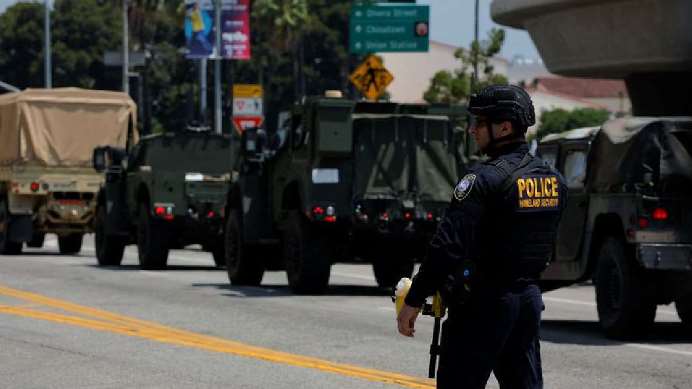JOS, Nigeria — It may well have been the bloodiest seven days in recent times. In north-central Nigeria, cattle herders and four farming communities armed with guns and machetes waged pitched battles last month. Nigerian war was the latest round of violence in a long-running fight over grazing rights in the region.
Check also: Where girls are being kidnapped and used as suicide bombers
Anyone who’s watched old movies about the Wild West in the United States will remember violent dramas about range wars between cattlemen and dirt farmers. But wild West Africa is far bloodier than anything Hollywood ever imagined.
The war between Muslim herdsmen and Christian farmers!
It has so far killed more than 60,000 people in the last 15 years. It’s a situation jihadists mean to exploit.
Hundreds were killed in this war—including children who were hacked to death. Houses were razed and properties destroyed before security agents restored peace in the Agatu local government area of Benue state.
Yet little has been reported outside Nigeria about these massacres in the north-central region of the country, because this isn’t essentially a war about establishing a caliphate, the so-called Islamic State is not directly involved (at least not yet), and the actors don’t kill with the same intentions as Boko Haram in the north-east, although that group has exploited some of the horror stories that have emerged from the conflict. Nobody would claim, to use a favorite phrase of U.S. President Barack Obama, that this range war presents an “existential threat” to the United States. But it certainly threatens the existence of people in this country.
Over the past several years, herdsmen from Nigeria’s Fulani tribe, who have had a long-running battle with farmers in the central region known as the Middle Belt, are believed to have killed thousands of people in agrarian communities. These massacres have in turn generated revenge killings. Often the attacks are carried out with traditional weapons—bows, arrows and machetes—and the killings have a ghastly, almost ritualistic appearance.
Since 2001, disputes over land in the Middle Belt have claimed over 60,000 lives. Boko Haram attacks, meanwhile, have resulted in about 17,000 deaths since 2009.
Because the herdsmen are largely Mulsim and the farmers are mostly Christian, the potential is there for radicals to exploit the conflict, but its roots are not primarily religious. At least since 1999, bigger herds of cattle have been encroaching on greater parcels of farmland.
To some extent, the violence in the Middle Belt also can be traced to the colonial era.
Before Nigeria’s independence in 1960, the British opened up tin mines in the central Middle Belt area and invited in outsiders from other parts of the Nigerian colony to work for them. The area is historically Christian and many of these “outsiders” were Muslim Fulani, the biggest tribe in the north, which is considered the largest nomadic ethnic group in the world.
As the Fulani began to settle in the Middle Belt, their herdsmen increasingly shifted their livestock south into the region in search of pasture, thereby establishing more permanent settlements. The Sahel drought of the 1960s, which drastically reduced both their traditional grazing lands in the north, contributed to this movement, and climate change continues to keep up the pressure.
The Berom are the largest ethnic group in the area. They are predominately farmers, they speak a distinct language, and many are Christians. They complained of the destructive presence of cattle on their land and resorted to killing the herds. The Fulani responded to these overtures of violence with even greater brutality.
On September 7, 2001, tension between herders and farmers led to the Jos riots in Plateau State, where over 1,000 people were killed in a week. An investigative committee set up by the Nigerian government subsequently found that between September 2001 and May 2004, as many as 53,787 individuals were killed as a result of the conflict.
Recent figures show that over 6,500 lives have been lost in the Middle Belt conflict since 2010, although experts say the actual death toll is likely much higher.
In many parts of the Middle Belt, the violence has led to ethnic cleansing reminiscent of the Balkans. Formerly mixed villages teamed up as a single ethnic group to face the Fulani.
Source: the daily beast
Check also;
- Trump To Sell High-Tech Planes To Nigeria To Fight Boko Haram
- Nigeria’s Boko Haram Rated As The Deadliest Terrorist Group In The World
This is not a Paywall, but Newslex Point's journalism consumes a lot of time, hard-work and money. That's why we're kindly requesting you to support us in anyway they can, for as little as $1 or more, you can support us .
Please use the button below to contribute to Newslex Point, Inc. using a credit card or via PayPal.

 Newslex Point News in Uganda, Uganda news
Newslex Point News in Uganda, Uganda news












